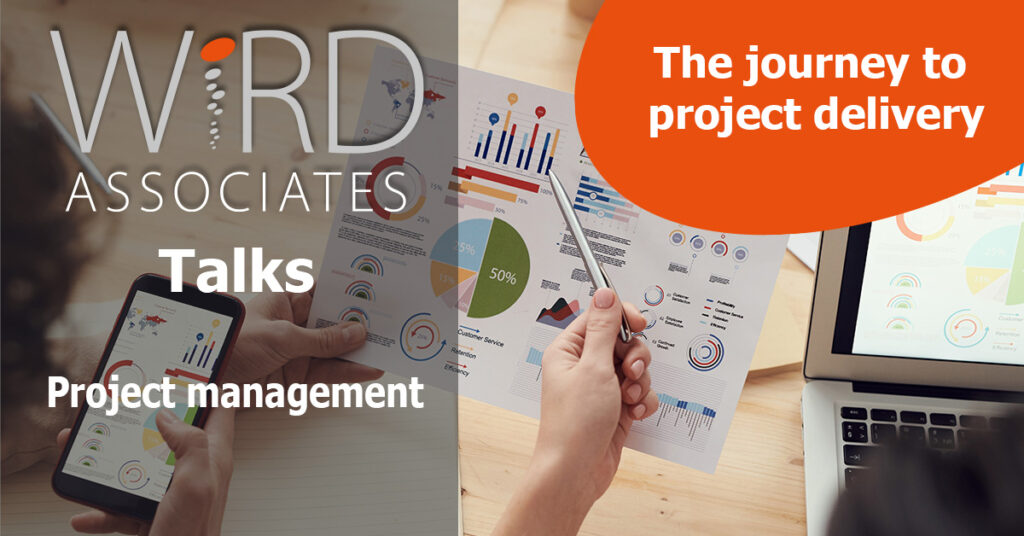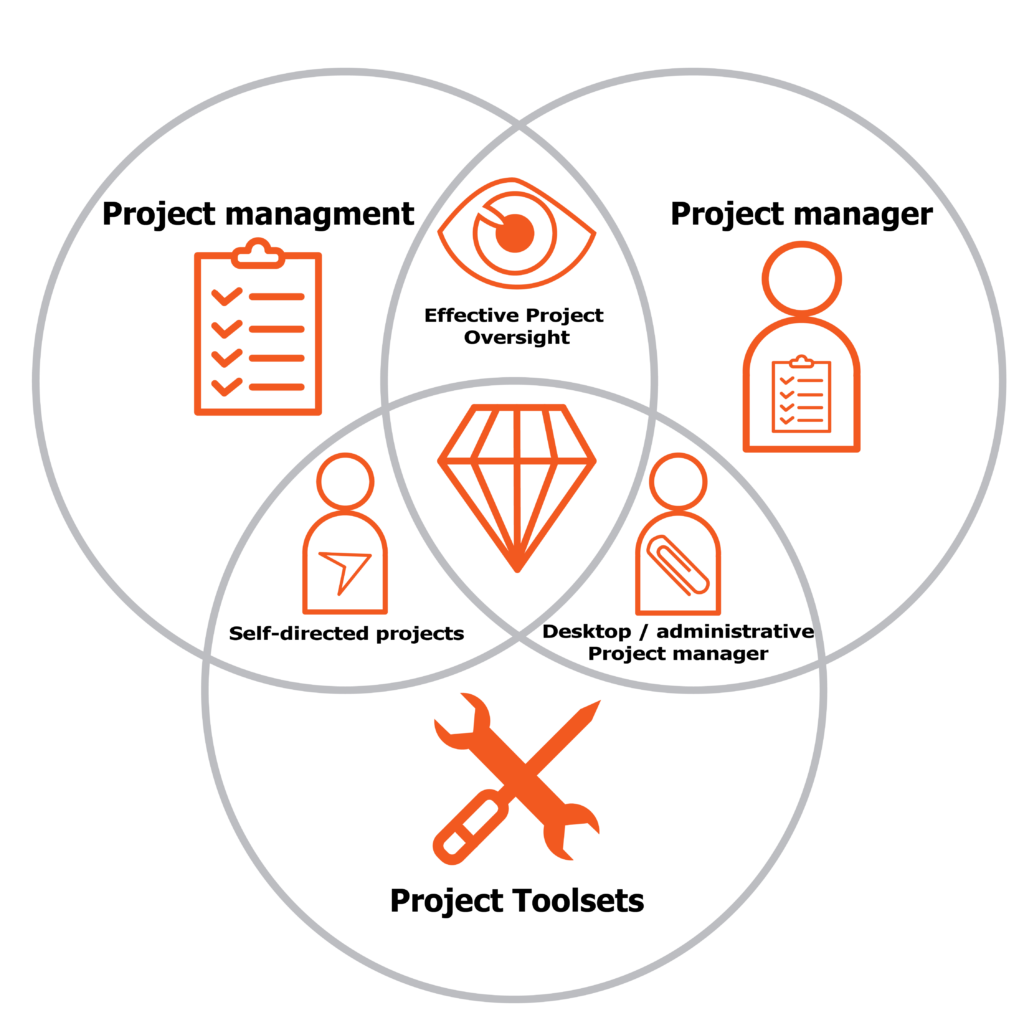- 2022-10-18
- Posted by: admin
- Category: Project management
WiRD’s project managers provide insights into the contribution of various components to project management success.

Successful project delivery comes at the end of a complex journey. WiRD’s project managers harness their many years’ experience and their up-to-date knowledge of project management toolsets to help you navigate your way to project management success.
Our experts have visualised a project delivery Venn diagram. A discussion of its elements follows.

Every project involves project management and every member of a project team does some of it. Whenever a team member is assigned a task and drives that task to conclusion, within the constraints of time, scope, resources and quality requirements, they are doing project management.
“So, what is a project manager?” you may then ask. The answer is that a project manager is a designated person assigned to a project to drive project delivery. The project manager is responsible for the overall project performance and delivery and manages the whole project within the constraints of time, scope, resources and quality requirements.
To be effective, a project manager needs hard project management skills and soft skills, such as stakeholder management, communication management, listening and conflict resolution skills.
According to our experts, not every project has a project manager and some projects may not need one. There are many situations where project teams are self-directed and function effectively without a designated project manager. For purposes of this discussion, our experts consider the term ‘project manager’ to include programme managers, portfolio managers, project leaders and project directors.
Nonetheless, project management can be a career choice and professional project managers may hold either a PMP® or PRINCE2 accreditation, or may have obtained a tertiary qualification in project management.
Whether or not a project has a designated project manager, project management toolsets can be used to support project delivery. These toolsets can be extremely sophisticated, such as MS Project and its online offerings, which we discussed previously in our blog . However, tools like Trello, Basecamp, MS Excel and MS PowerPoint can also be employed quite effectively as project toolsets. Even a whiteboard with Post-it notes that are adjusted daily can serve as an effective project toolset.
Nonetheless, our experts say you may not need a project toolset to achieve project delivery. Seasoned project leaders working with project team members who regularly work together on similar projects can deliver project outcomes quite effectively without project toolsets.
Toolsets can be admin intensive and can create busy work that hampers project progress. They can involve templates, gates, complex stages and taxonomies, administrative requirements and other overheads that take up time that could better be used to complete the project.
However, they do offer large companies a way to standardise an environment for project management. A toolset can be deployed by a project management office for all projects in a portfolio or programme of projects to provide clarity, cohesion and a reliable chain of responsibility.
Project management toolsets often add value to projects. In conjunction with other aspects of project management, they can create the optimal environment for completing a project efficiently and successfully. They can also have pitfalls, but good project management mitigates the toolsets’ shortcomings, thus securing the toolsets’ place in the interlinking components of successful project delivery.
The key to project success remains effective project management. Our experienced experts are ready and willing to meet your project management needs and help you to overcome any challenges your projects may be facing.
